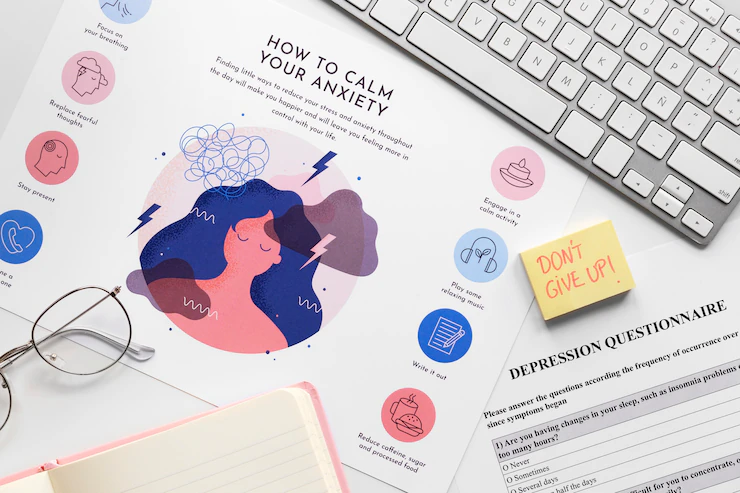In today’s fast-paced and demanding world, it’s essential to prioritize your mental health and practice self-care regularly. Taking care of your mental well-being can help reduce stress, improve resilience, and enhance overall quality of life. Here are some tips for practicing self-care and prioritizing your mental health:
- Prioritize Self-Care Activities: Make self-care a non-negotiable part of your routine. Dedicate time each day or week to engage in activities that bring you joy and relaxation. This can include hobbies, exercise, spending time in nature, reading, practicing mindfulness or meditation, or simply taking a break to do something you love.
- Practice Mindfulness: Mindfulness is the practice of being fully present and aware of the present moment. It involves observing your thoughts, feelings, and sensations without judgment. Engaging in mindfulness exercises, such as deep breathing, meditation, or body scans, can help reduce stress, increase self-awareness, and promote mental well-being.
- Establish Healthy Boundaries: Learn to set boundaries and prioritize your needs. Say “no” to commitments or activities that overwhelm you or compromise your mental health. Recognize that it’s okay to take breaks, ask for help when needed, and make choices that align with your well-being.
- Nurture Supportive Relationships: Surround yourself with positive and supportive people who uplift and encourage you. Cultivate relationships that promote open communication, empathy, and understanding. Seek support from friends, family, or professional counselors when needed.
- Practice Self-Compassion: Be kind and gentle with yourself. Treat yourself with the same compassion and understanding that you would offer to a loved one. Embrace self-acceptance, celebrate your achievements, and forgive yourself for any mistakes or setbacks.
- Engage in Regular Physical Activity: Exercise has numerous benefits for mental health. Engaging in regular physical activity can help reduce stress, boost mood, improve sleep, and increase self-confidence. Find activities that you enjoy, whether it’s walking, jogging, dancing, yoga, or any other form of exercise.
- Get Adequate Sleep: Prioritize quality sleep as it plays a crucial role in mental well-being. Establish a consistent sleep routine, create a calming bedtime routine, and ensure a comfortable sleep environment. Avoid screens before bed and limit caffeine intake, especially in the evening.
- Practice Healthy Habits: Focus on maintaining a balanced and nutritious diet. Eat regular meals, stay hydrated, and limit excessive caffeine or alcohol consumption. A healthy body supports a healthy mind.
- Disconnect from Technology: Take breaks from technology to recharge and reduce mental clutter. Set aside designated times to disconnect from screens and engage in activities that promote relaxation and creativity.
- Seek Professional Help: If you’re experiencing persistent or overwhelming mental health challenges, don’t hesitate to seek help from a mental health professional. They can provide guidance, support, and evidence-based treatments tailored to your needs.
Remember, self-care is not selfish; it’s essential for your overall well-being. By prioritizing your mental health and practicing self-care, you can cultivate resilience, enhance your ability to cope with stress, and lead a more fulfilling and balanced life.










